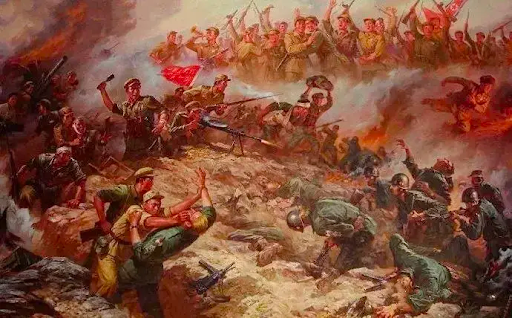At the crux of the People’s Republic of China (PRC) is a story of greatness and growth out of suffering and shame. From 1839 until 1949, China was subjected to defeat, intervention, and exploitation by foreign powers in what is known as the Century of National Humiliation (百年国耻). The guiding ambitions of the PRC today—chiefly strengthening the nation against foreign influence and rectifying the wrongs inflicted upon China—are deeply rooted in this national narrative propagated by the Chinese Communist Party (CCP).
While much of the territory lost by China during the Century of Humiliation has been restored to Chinese control (i.e. Hong Kong, Xinjiang, Tibet), Taiwan remains disunited from the mainland, even as total reunification has become central to China’s national identity and historical consciousness. The Century of National Humiliation, a collective trauma ingrained in the identity of the PRC, is crucial to understanding why China views Taiwan as a threat to the legitimacy of its regime, and why Chinese aggression toward the Republic of China is inevitable.
In 1839, the British Empire sent a fleet to China, forcing Chinese rulers to open themselves to British trade and sign the so-called “Unequal Treaties.” This milestone marked the onset of a much longer period of foreign interference in China. The resulting humiliation by technologically advanced imperialist powers completely undermined the self-identity of China, which had long conducted affairs as a powerful empire that commanded the respect and tribute of all foreigners.
When the Chinese Communist Party established the PRC in 1949, thus ending the Century of Humiliation, the need to rectify injustices inflicted upon the country was the guiding principle that shaped the new government. The CCP crafted a narrative around the Century of Humiliation that legitimized its authority, portraying itself as the only party able to withstand foreign intervention and alleviate the Chinese suffering caused by outside aggressors. According to this national narrative, the CCP was the only government that could return China to its former glory and rectify the losses experienced by China, justifying the one-party system.
The legacy of the Century of National Humiliation is clearest in the case of Taiwan. Although the island did not come under ethnic Chinese rule until 1662, mainland Chinese people had crossed the strait and settled there since the 15th century, influencing the Chinese understanding of Taiwan as a historical part of China. The First Sino-Japanese War in 1895 was central to the Century of Humiliation. To China, the loss of Taiwan was a humiliating defeat that showed the supremacy of the Japanese military, which the Chinese had previously regarded as inferior. Today, Taiwan is in a state of de facto independence as the Republic of China (ROC), which remains the active authority on the island despite not being officially recognized by most countries and international bodies.
The PRC sees Taiwan as a renegade territory that is still part of ‘One China,’ making its official reclamation central to the restoration of national glory. In the words of former PRC president Jiang Zemin, “It is the bounden duty of the Chinese Communists to end the state of separation between Taiwan and China’s mainland and achieve the complete reunification of China.” The legitimacy of the CCP is therefore inextricably intertwined with its agenda in the Taiwan Strait—the current de facto autonomy of the Republic of China poses an ideological threat to the rule of the CCP.
Much of the Western discourse today on cross-strait relations and the prospect of invasion revolves around discussion of economic viability, physical security threats, and the impact of Russia’s invasion of Ukraine—all things that do indeed matter to the PRC. However, what Western discourse often fails to understand is the tremendous extent to which the historical memory of the Chinese is woven into the PRC’s grand strategy. With China-Taiwan relations in a state of constant tension as China increases pressure on Taiwan and ROC presidential elections loom, strengthening US deterrence is more critical than ever for preventing conflict in the Strait. As the reunification of Taiwan is perceived as a foregone conclusion within the CCP, the expected cost of a reunification war is the central determinant of the timeline for aggression that China sets. Further emphasis in US foreign policy should be placed on how heavily Beijing weighs the rewards of reclaiming Taiwan in its cost-benefit calculations. A miscalculation or underestimation of the perceived value of Taiwan to Chinese leaders by Washington could lead to a failure of deterrence, the consequences of which could be catastrophic for the security of the people of Taiwan and the stability of the Indo-Pacific region as a whole.
